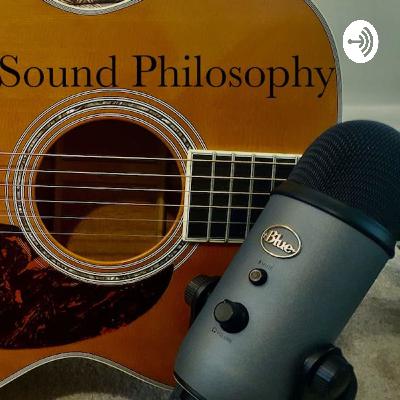Discover Sound Philosophy
Sound Philosophy

115 Episodes
Reverse
Eric Taxier and I continue our discussion of the Nicomachean Ethics by discussing the social virtue of "friendliness."
Eric Taxier and I discuss Aristotle on the emotion of anger.
Eric Taxier and I discuss chapters 3-4 for Book 4 of Aristotle's Nicomachean Ethics, which focus on the proper relationship to ambition.
Eric Taxier and I discuss Book 4, Chapter 2 in Aristotle's Nicomachean Ethics, his treatment of the virtue of magnificence (grand spending).
Eric Taxier and I discuss chapter 1 of Book 4 of the Nicomachean Ethics, a chapter on the virtue of generosity.
This episode briefly examines two tracks produced by J Dilla: "Runnin'" by the Pharcyde and "Show Me What You Got" by Busta Rhymes. I discuss the stratification in Dilla's beats, their stuttering quality, their use and avoidance of quantization, and the response of the rappers to those beats.
This episode explores the relationship among flow, content, and rhyme by looking at some excerpts from Eminem and Mac Miller.
This episode looks at "Sober" and "Vicarious" by Tool and discusses the release and impact of Fear Inoculum.
A brief look at Math Rock from a guitarist's point of view.
A look at the shift from funky R&B to Funk as a standalone genre. I discuss the various elements of Funk, particularly what I'm calling "Funk Counterpoint" by examining The Meters' "Cissy Strut," and James Brown's "Cold Sweat."
This episode discusses the role of the bass in popular music, specifically in funk, and more specifically in the work of the bass player for Sly and the Family Stone (and later for his own group, Graham Central Station), Larry Graham--renowned for inventing the slap bass technique.
Eric Taxier and I finish our discussion of Book 3 of the Nicomachean Ethics by examining Aristotle's analysis of temperance.
Eric Taxier and I continue to discuss Aristotle's take on courage.
This episode discusses claims that Minimalism (and minimal music more widely understood) boils down to advertising and propaganda (riffing on interviews by Elliott Carter and Philip Glass). I look at some pop songs that were clearly influenced by Minimalism, some that are parallel to it, and some that are simply minimalist in some manner.
This episode uses Minimalism (and specifically Terry Riley's In C) to examine the issues of temporality and repetition in music.
This episode briefly introduces flamenco music and then touches on the compas--the approach to meter within this music--by specifically looking at the genre of the siguiriyas.
This episode looks at the rhythmic juxtaposition or superimposition of groupings of twos and threes. I discuss hemiola, odd meters, and various figures related to the tresillo (3+3+2).
An introduction to the Piedmont style with an emphasis on the influence of ragtime.
A discussion of the nature of meter deriving from thoughts about time and its qualitative nature. I draw on the work of Aristotle, Bergson, and Viktor Zuckerkandl.
This episode explores the nature of the backbeat,





